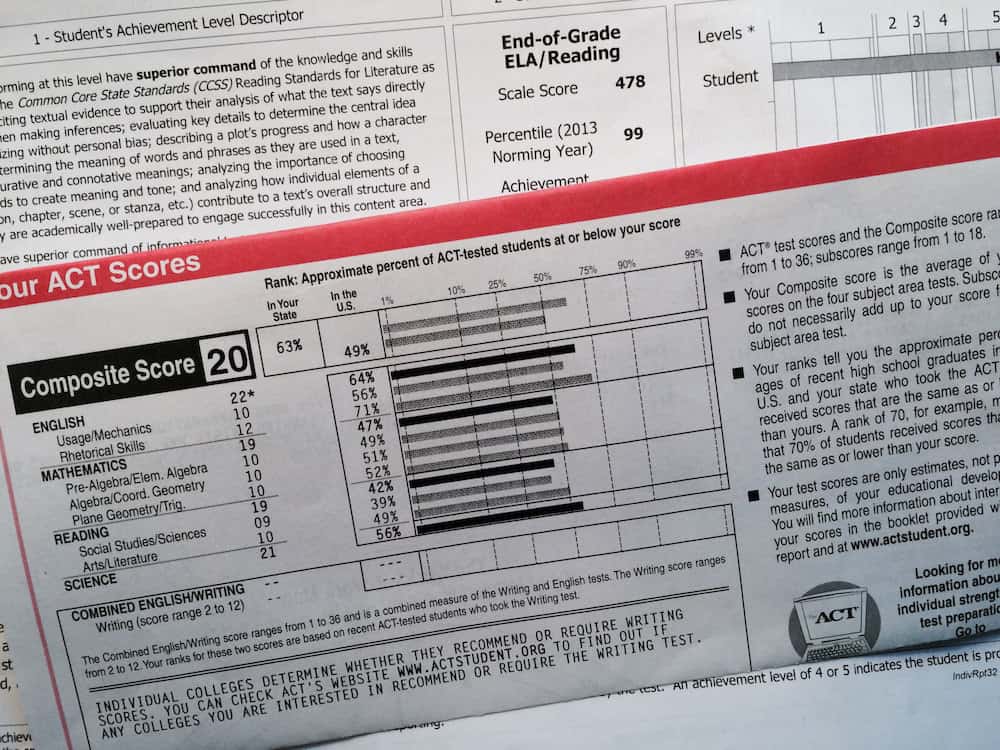

Governor Pat McCrory used his State of the State address to insert himself into the state and national debates over required and standardized testing in elementary, middle, and high schools. He favors “testing less and teaching more.” And, no doubt, many thousands of North Carolina teachers, parents, and students agree with the governor’s goal.
“My administration is finalizing a plan to reduce tests…to distinguish which tests improve a student’s performance and which tests simply waste time,” said McCrory. “We will eliminate unneeded testing by next year.”
As he spoke to the General Assembly, the governor did not mention that on the very next day, the state Board of Education would release grades – A through F – for every public school in the state. And those grades were calculated largely on achievement scores based on – you got it – test results.
The day after the release of the grades, McCrory put out a statement welcoming the grades for schools as a “positive first step to provide North Carolina’s parents, communities and policymakers with a clear measure of what matters most: our student’s academic achievement.” By inference, it appears that the governor does not include all tests among the unneeded.
Eric Guckian, senior policy advisor to the Governor, says:
“Governor McCrory is committed to measuring what matters most for our students. That means fewer and better tests. The 20th century model of dead on arrival metrics and bubble sheets must be replaced by a more formative, competency based model. We need to give teachers the time to teach and students the time to learn. There seems to be a growing bipartisan consensus that we need to move quickly toward a 21st century model of standards and assessments. The Governor is committed to working with all North Carolinians to ensure we are allowing students of every age and from every circumstance the opportunity to demonstrate what they know and what they can do in order that they can compete for real world high-skill, high-wage jobs.”
Two weeks earlier, A.L. “Buddy” Collins, vice chair of the State Board of Education, signaled that a study group – the NC State Board of Education Task Force on Summative Assessment – would soon recommend ending end-of-course testing as now implemented in North Carolina, along with some tests administered by local school districts. As Alex Granados reported at EdNC, Collins, a Winston-Salem attorney, suggested a move to two types of assessments – one type to focus on students’ achievement, and another to provide North Carolina citizens and policymakers with comparisons among states, districts, and schools.
A proposed House bill would extend the testing requirements, even as voices of opposition gain volume among teachers and parents.
The emerging debate in North Carolina comes as the issue arises again in Washington with Congress considering extending the No Child Left Behind provisions of the venerable Elementary and Secondary Education Act.
No Child Left Behind, a product of the Bush administration, requires annual testing in grades three to eight in reading and math and once in high school as well as a science test is given once in elementary, middle, and high school. The results are used to determine whether schools achieve “adequate yearly progress.” A proposed House bill would extend the testing requirements, even as voices of opposition gain volume among teachers and parents.
Last weekend, The New York Times Book Review devoted a page to a new book, “The Test: Why Our Schools are Obsessed With Standardized Testing – But You Don’t Have to Be’’ by Anya Kamenetz, a journalist specializing in education. The Times reviewer called it a “guidebook’’ for the movement opposed to high-stakes testing.
The Times also had an interview with Lani Guinier, a Harvard Law School professor, who is especially concerned about the use of the SAT in college admissions. Guinier, author of a new book, “The Tyranny of Meritocracy: Democratizing Higher Education in America,” describes the system as a “testocracy.”
Still, strong arguments remain for sustaining standardized tests, administered often enough to provide meaningful data on how well, or not so well, schools are doing. Two scholars at the Brookings Institution conclude: “Policymakers thus face a stark choice: require annual testing or settle for low-quality and potentially misleading information on school quality.”
“[I]t’s not beyond the capacity of North Carolina to take the lead in meshing national, state, and local tests into a fair and equitable, as well as educationally effective, system of testing….”
The Brookings paper, by Matthew A. Chingos and Martin R. West, drew from a decade of student-level records of public elementary schools in Florida and North Carolina. While it was published online on January 20, 2015, well before the release of the school grades, the paper makes clear the importance of how tests results are reported and used to determine policy. In North Carolina, the letter grade schools received were derived from a formula, with 80 percent from test scores and 20 percent on growth.
The Brookings scholars point out that “sixty-eight percent of low-income schools that would be identified as failing based on their average score would not be sanctioned based on academic growth.” Thus, they write, “Our results confirm that using average test scores from a single year to judge school quality is unacceptable from a fairness and equity perspective.”
Clearly, embedded in Governor McCrory’s call for eliminating “unneeded testing’’ are serious and complex issues about the purposes of standardized tests. Are they to be focused on evaluating individual students so that teachers and parents can guide young people in their care? Or to evaluate teachers? Or to grade schools? Or figure out which schools need more resources? Or to compare North Carolina and US schools with international competitors? All or some of the above?
It’s beyond the scope of a State of the State address to answer these questions with specificity. But it’s not beyond the capacity of North Carolina to take the lead in meshing national, state, and local tests into a fair and equitable, as well as educationally effective, system of testing and measuring.


